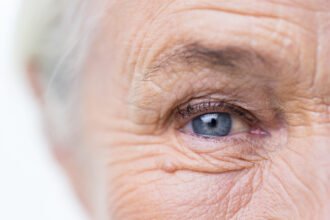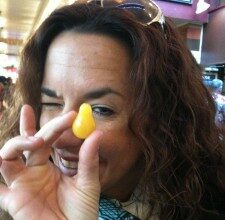At a time when we all have access to more information than ever before, it can be difficult to filter through all of that content to determine what’s fact and what’s fiction – and the challenge is only greater for patients working to navigate the world of health and medicine. That’s why, as medical professionals, it’s our responsibility to help our patients develop health literacy skills. At a time when we all have access to more information than ever before, it can be difficult to filter through all of that content to determine what’s fact and what’s fiction – and the challenge is only greater for patients working to navigate the world of health and medicine. That’s why, as medical professionals, it’s our responsibility to help our patients develop health literacy skills. Health literacy has proven benefits in a number of regards, helping patients to understand their diagnoses, learn about medication side effects, research clinical trials, and make better food choices – but it’s not always easy to teach these skills. Luckily, there are resources available that can help patients approach the process, including eLearning opportunities, teach back techniques, and easy content assessment strategies. By sharing these resources and devoting time to teaching about information interpretation, we can help patients achieve greater understanding and prepare them for an information saturated world. Spotting Credentials One of the greatest difficulties for patients learning to navigate health information online is identifying reliable sources. Luckily, there are easy ways to help patients tell the difference between medicine and pseudoscience. For example, we can encourage patients to seek information from websites with addresses ending in “edu” or “gov.” These sites are more likely to provide informed, accurate content. Similarly, patients should learn to look for the author credentials on any health information. This article on the health value of flaxseeds, for example, was written by someone with degrees in public health and nutrition. Teaching patients about these degrees and titles – MD, MPH, RN, LPN – can help them assess their sources of information. The third factor patients should be taught to look for is citations. The same flaxseed article can again serve as a guide; at the end you’ll find research citations that can be used as a teaching tool with patients. Teaching patients about the importance of published studies can take medical information from confusing to useful. The Teach Back Approach When patients leave a medical appointment, the hope is that they understood the information presented to them and are prepared to apply it at home. That might mean making dietary changes, taking medication as directed, or monitoring certain symptoms or health metrics, like pulse or blood sugar. Unfortunately, patients often leave an appointment uncertain about what they’ve been told about their health and what they’re supposed to be doing. That’s why using a teach back approach is so helpful when building patient health literacy. In essence, a teach back is exactly what it sounds like – after you explain something to a patient, you ask them to teach it back to you. It’s especially important to make sure they can do this in their own words, not just parrot back your exact phasing. By translating the language of the directions, patients show that they’ve absorbed and understood the information. You can also use an accompanying show back approach when teaching patients to use a new device, such as an auto-injector or blood sugar monitor. If a patient can’t teach back or show back what you’ve taught them during an appointment, you need to spend more time working with them. Learning Beyond The Appointment Perhaps the best tool available for improving health literacy is the new Healthy People 2020 initiative sponsored by the U.S. Office of Disease Prevention and Health Promotion (ODPHP). The Healthy People campaign offers numerous online resources, such as eLearning webinars, evidence-based resources, and key health indicators. While much of this is targeted towards health professionals and students, the resources equip us as professionals to work with patients towards key health goals. The importance of ODPHP’s Healthy People campaign is clear in the “preparedness” objective. In the face of major health crises, the objective emphasizes the ability to communicate, inform, and meet the needs of the community. We need to build health literacy in advance of such emergencies, however, in order to fulfill this objective – the constraints of a crisis are such that we have less time for explaining and re-explaining health-related content. Ultimately, health literacy is a project that requires the full engagement of both patients and health professionals, and it’s a responsibility we share. When we can more clearly recognize that an informed patient is a healthier patient, we may finally begin to shift and expand the content of medical appointments and the capacities of patient health portals. It’s time to focus on interpretation and understanding as much as we focus on diagnosis and treatment.






